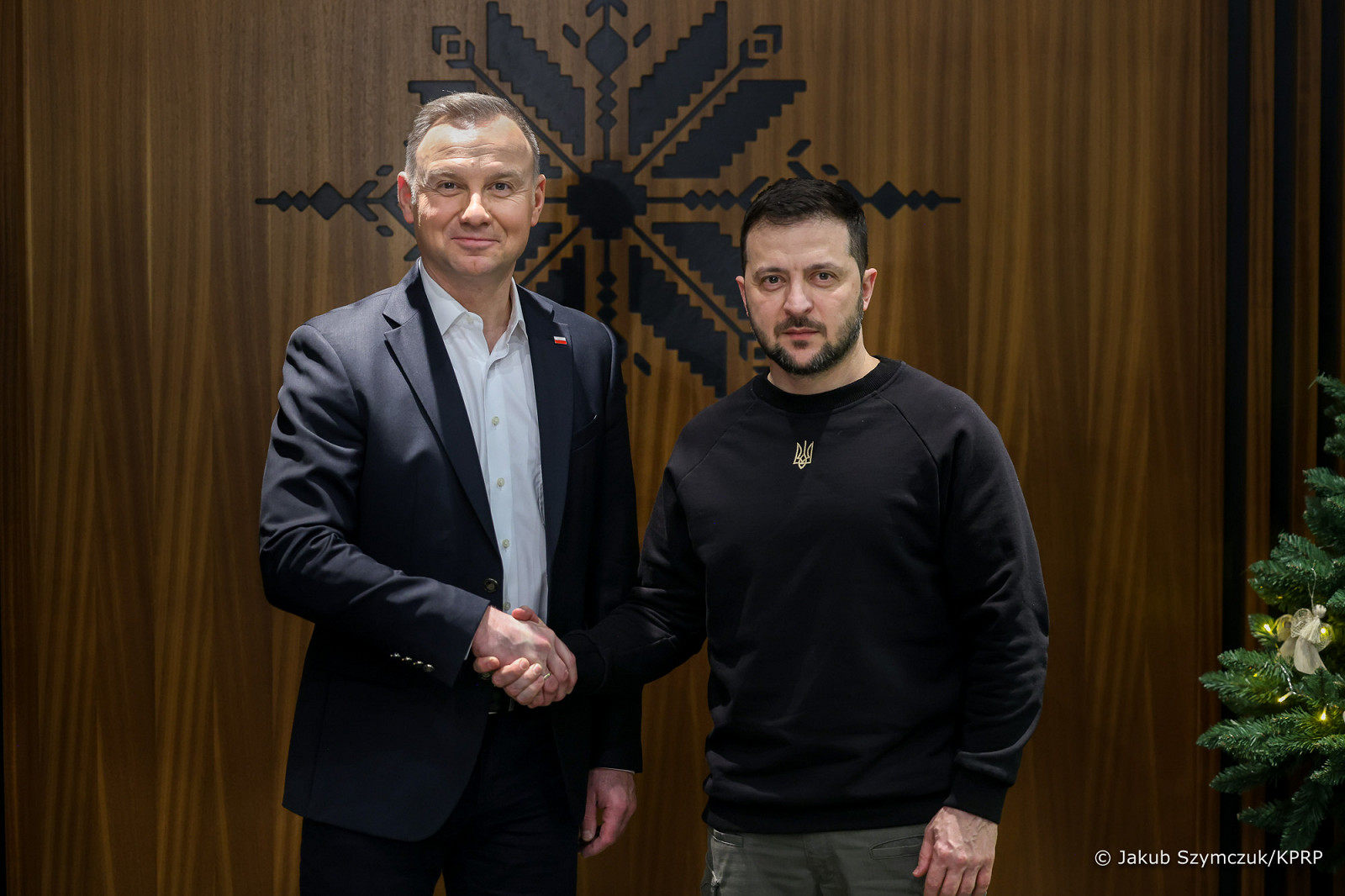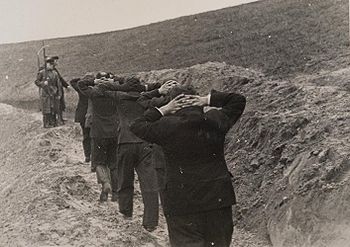Love hangover in Polish-Ukrainian relations

It’s been a long time since any politician’s words caused such outrage in Poland as the speech by Ukrainian President Volodymyr Zelensky at the United Nations General Assembly.
Paweł Lisicki
The fact that the Ukrainian president brought up the grain crisis was no surprise, but what he said about Poland was: “We are working to protect land routes. It’s alarming to see how some in Europe play out solidarity in a political theater – making a thriller out of the grain. They may seem to be playing their own role, but in fact they are helping to set the stage for a Moscow actor.”
Truly, accusing Poles of being Moscow’s agents and of helping Russia in its war against Ukraine – and this is how President Zelensky’s words can be read — is so curious that it is breathtaking. Such an accusation after the gigantic amount of weapons and humanitarian aid given by Poland? On the other hand, however, could one have expected anything different? Hasn’t the Morawiecki government fallen into its own trap? I have written many times before about Polish foreign policy’s rather infantile nature.
It is characterized, exactly as in the case of children, by emotionality, extreme reactions, strong feelings, volatility, lack of reflection on the consequences of one’s own actions, and above all by an overlooking of what constitutes the essence of relations between states: forces and interests.
Yes, Polish politicians also talk about interests and benefits, the difference being that in their mouths these are only rhetorical phrases and forms of rationalization whose aim is merely to cover emotions. This, I believe, is exactly what our policy toward Kyiv has been. It was founded on three principles: love for Ukraine, trust in the United States, and hostility to Russia. At the same time, it is important that love, trust, and enmity were to be total, unconditional, absolute, uncompromising, and without any possible alternative.
As a result, as of February 2022 Warsaw, with the support of the US, gave the world lessons on morality, holding everyone else accountable for whether or not they support Ukraine enough in the fight against the ruthless and historical evil embodied by Russia. In this way, Poland has earned a lot of praise from the liberal media. But this approach has also come at a high cost.
First, many of Poland’s European Union partners have perceived our attitude with growing irritation. So it’s not surprising that now France, Germany, and other countries are playing off Poland and pointing out that by imposing an embargo on Ukrainian grain, we are breaking solidarity with Ukraine. After all, the exact same argument was earlier used against them by the Polish government when discussing successive sanctions packages against Russia.
Second, it’s safe to say that by preaching to everyone about the need to impose sanctions as quickly and radically as possible, so long as it weakens Russia, Warsaw has earned the latter’s growing hatred. Over the past several months, one could get the impression that Warsaw has become more pro-Ukrainian and anti-Russian than Ukraine itself. This Manichean approach, disregarding the threat of Russian retribution, could cost us dearly. Poland’s boldness was based on the assumption that the Ukrainians cannot lose because they have the Americans behind them.
Third, no other country has tied its own sovereignty so tightly to the war situation in Ukraine as Poland. Only the Polish prime minister equated Poland’s sovereignty with Ukraine’s, and only the Polish president claimed that Poland has no interests of its own and that it only represents Ukrainian interests.
Poland acted as if Ukraine’s victory was a foregone conclusion and a potential conflict with Kyiv was impossible. Not surprisingly, it is the government and those politicians who have been the face of love for Ukraine who are now at their worst. I can only predict what their narrative will be. It will probably be outrage as a result of ingratitude while emphasizing their own good intentions. Well, maybe this will convince some.
However, and this is my fourth point, it will be all the more difficult because in the current conflict situation there is no indication that the government will be able to fulfill another of its promises, namely the participation of Polish companies in Ukraine’s reconstruction. I’ll leave aside the question of when this could take place, but in any case it looks like the reconstruction and profits will be handled either by German companies or, as indicated by the appointment of Ms. Penny Pritzker as special representative of the US government for the reconstruction of Ukraine, by US corporations with ties to the Democrats.
Pritzker was the United States secretary of commerce in the Obama administration from 2013 to 2017, and she belongs to a wealthy Jewish family that originated in Ukraine. Another regular visitor to meetings with President Zelensky is Larry Fink, the head of corporate giant BlackRock. It’s easy to see who can count on potential profits. Really, even with all the good will in the world, I can’t see what Poland has achieved on its eastern flank.
This article was first published in Polish as the editor-in-chief’s column in the Do Rzeczy weekly.



